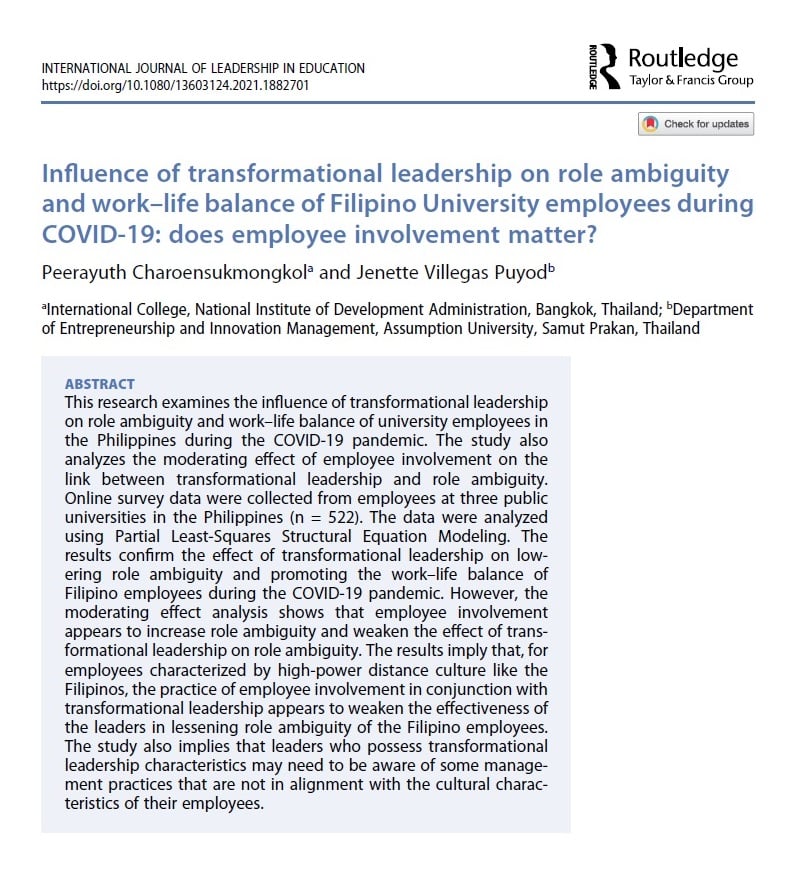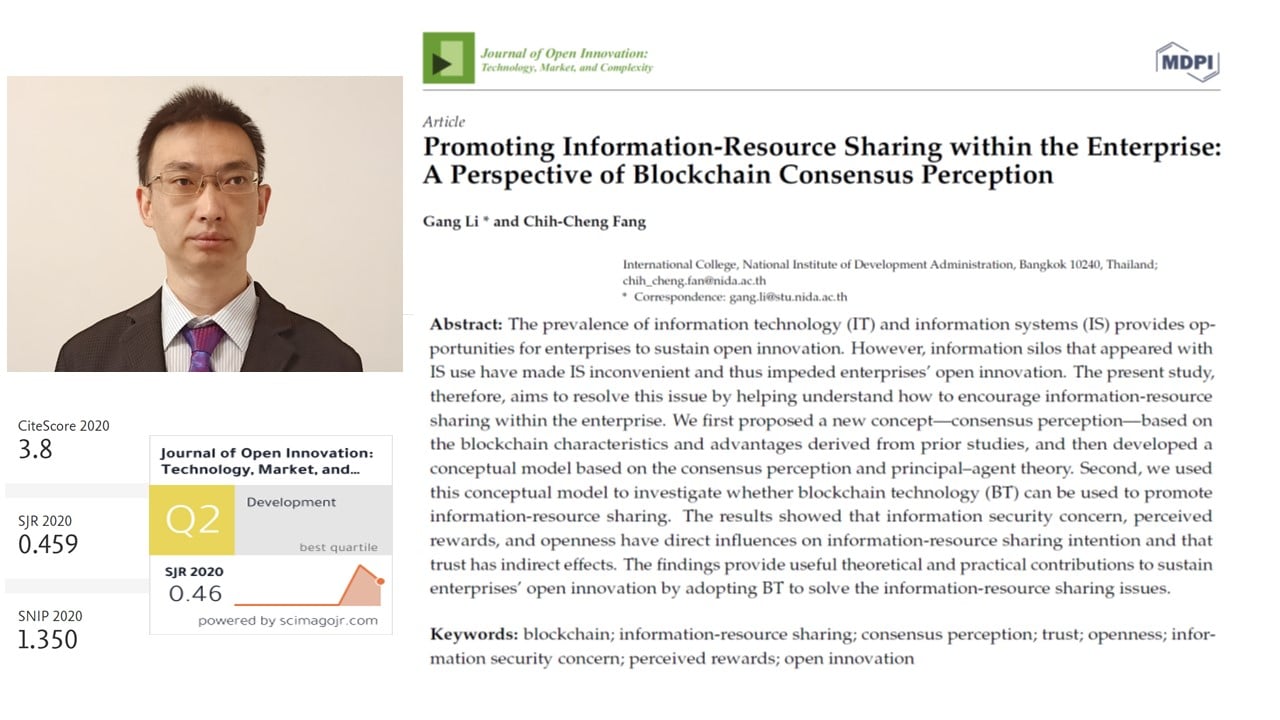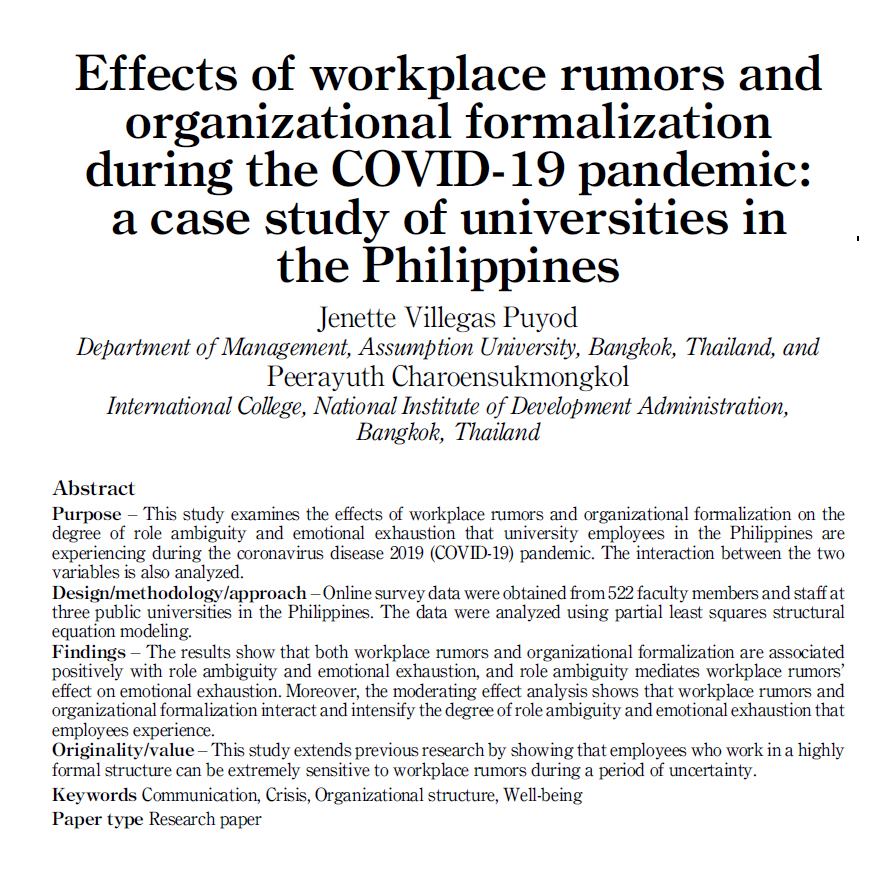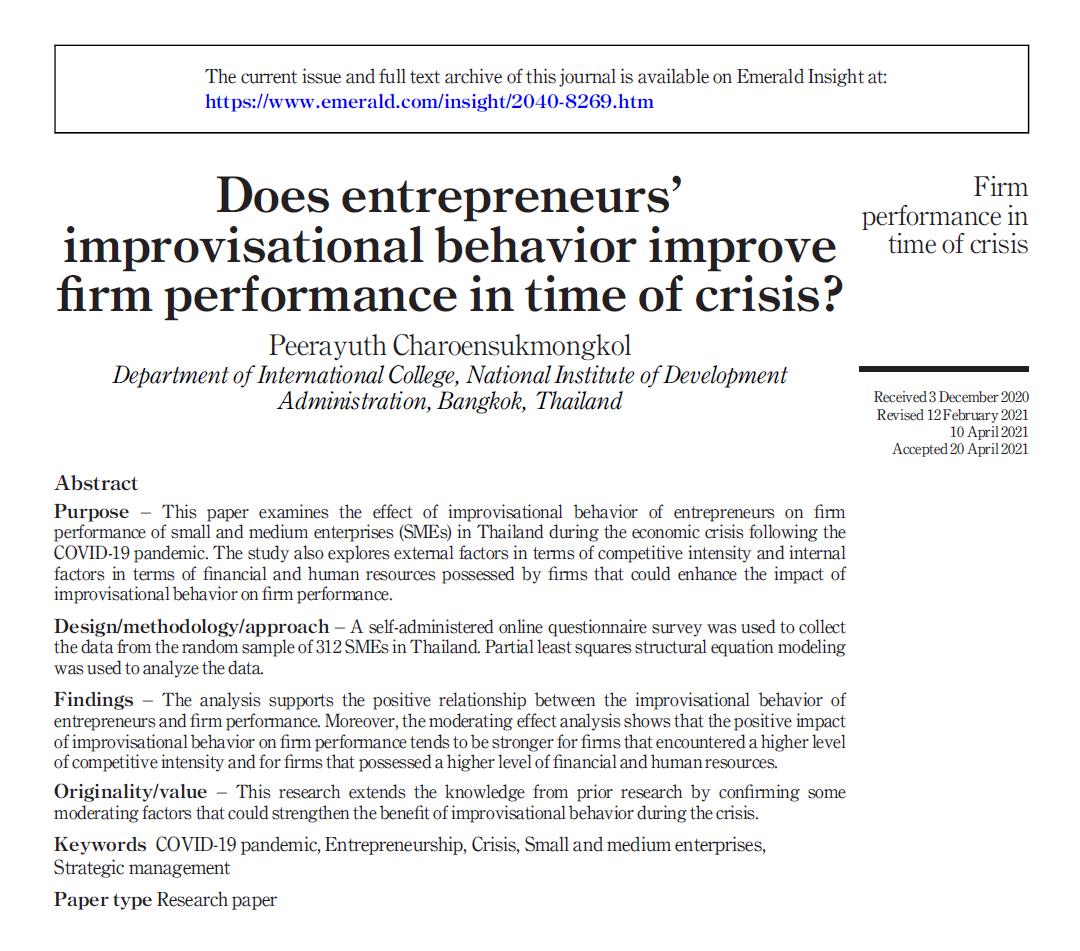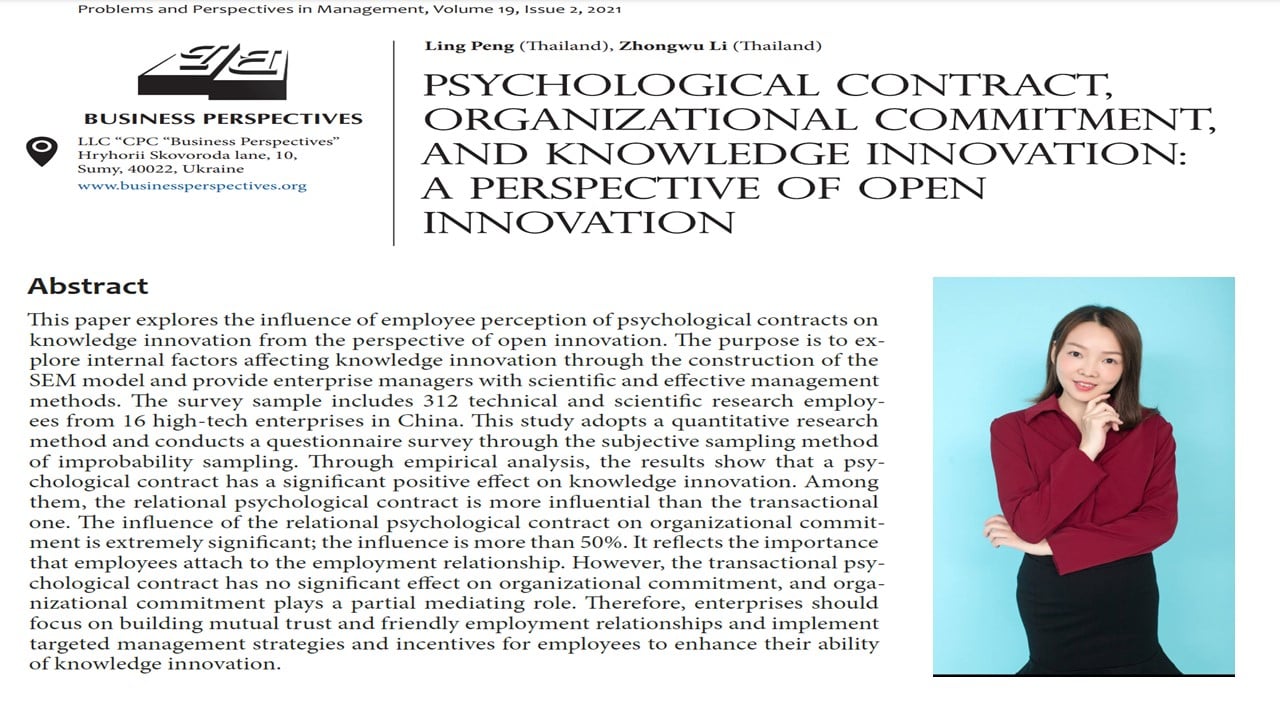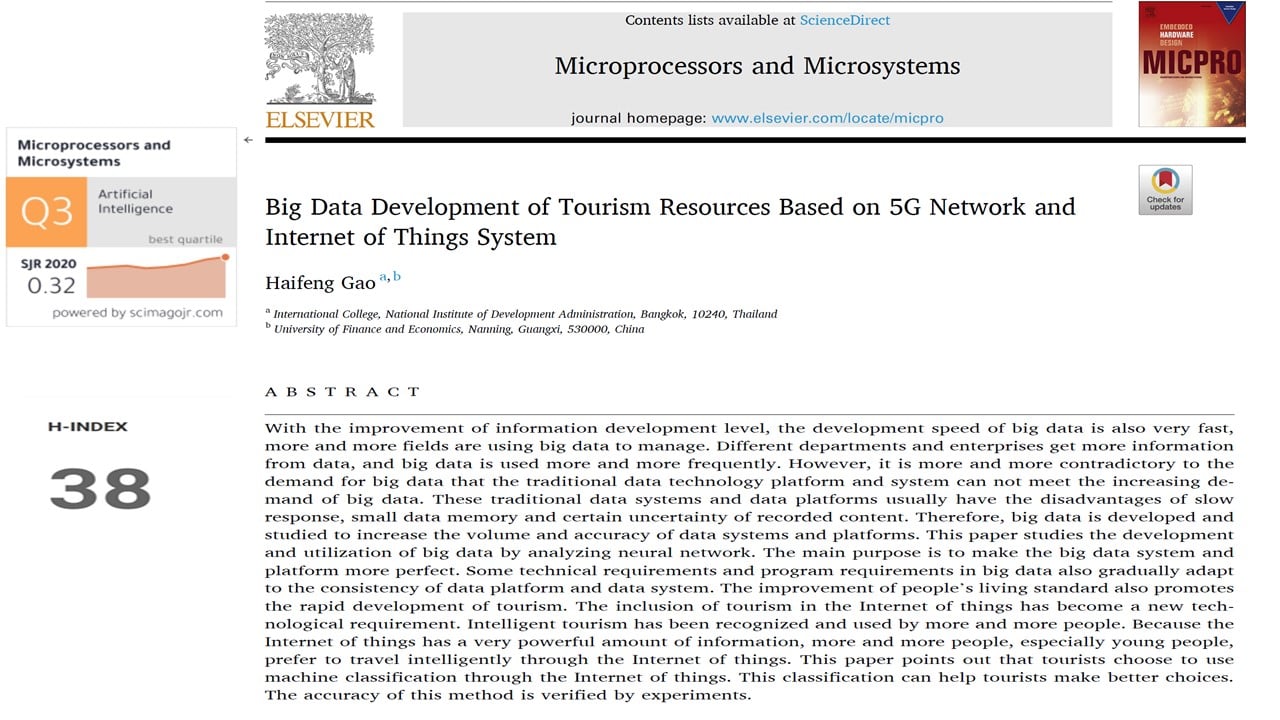Influence of Transformational Leadership on Role Ambiguity and Work-Life Balance of Filipino University Employees During COVID-19: Does Employee Involvement Matter?
One particular impact that employees inevitably experience when they have to work from home (WFH) during the COVID-19 pandemic is the lack of “Work–Life Balance”. Basically, when people work at home, they tend to dedicate more time into working and simply lose track of time due to the lack of boundary between work and home.
- Published in RESEARCH
Promoting Information-Resource Sharing within the Enterprise: A Perspective of Blockchain Consensus Perception
Mr. Gang Li, a recent Ph.D. graduate of ICO NIDA, published his dissertation in the “Journal of Open Innovation: Technology, Market, and Complexity”, which is ranked in the “SCImago Quartile 2”. His work is under supervision of Dr. Chih-Cheng Fang (Francis).
- Published in RESEARCH
Effects of workplace rumors and organizational formalization during the COVID-19 pandemic: a case study of universities in the Philippines
During the organizational crisis caused by the COVID-19 pandemic, rumors that spread in the workplace seem to have considerable effects on employees’ psychological well-being by aggravating panic and fear. Rumors also confuse employees and lead to distress. They ultimately produce a poor working environment and reduce work productivity. The research evidence about the negative impacts
- Published in RESEARCH
Does entrepreneurs’ improvisational behavior improve firm performance in time of crisis?
The recent research published by the faculty of ICO NIDA, Assoc. Prof. Dr. Peerayuth Charoensukmongkol, indicates that one crucial characteristic of entrepreneurs that could contribute to the survival of SMEs during the economic crisis caused by the COVID-19 pandemic is “Improvisational behavior”. Improvisational behavior is a spontaneous action guided by intuition, produced or carried out
- Published in RESEARCH
Psychological contract, organizational commitment, and knowledge innovation: A perspective of open innovation
Ms. Ling Peng, a recent Ph.D. graduate of ICO NIDA, published her dissertation in the Scopus database journal “Problems and Perspectives in Management”. Her work is under supervision of Dr. ZhongWu Li. More detail of the paper can be found via https://www.businessperspectives.org/index.php/journals/problems-and-perspectives-in-management/issue-380/psychological-contract-organizational-commitment-and-knowledge-innovation-a-perspective-of-open-innovation?fbclid=IwAR1r0lONxvK5XKVtrlu_J0iwiS1KXxyJkWU-B04z2_TORI6lSR048x9lNj8
- Published in RESEARCH
Big Data Development of Tourism Resources Based on 5G Network and Internet of Things System
Mr. Haifeng Gao has recently published his dissertation in the “Microprocessors and Microsystems”, which is ranked in the “SCImago Quartile 3”. His work is under supervision of Dr. ZhongWu Li.
- Published in RESEARCH
Dr. Shun-Chi Yu, Ph.D.
- Published in Faculty
- 1
- 2

